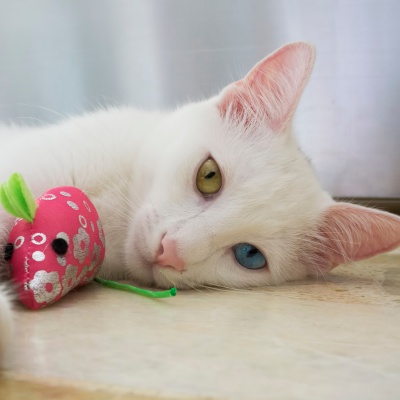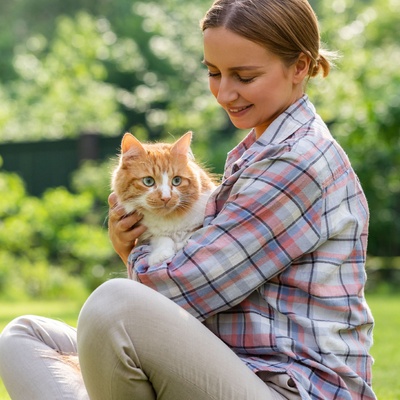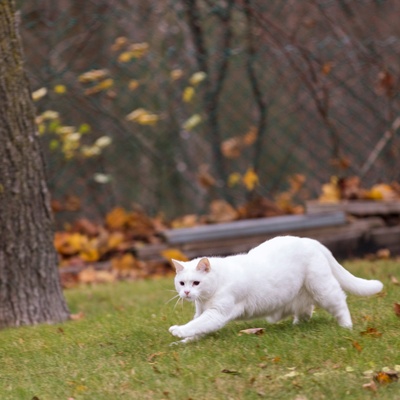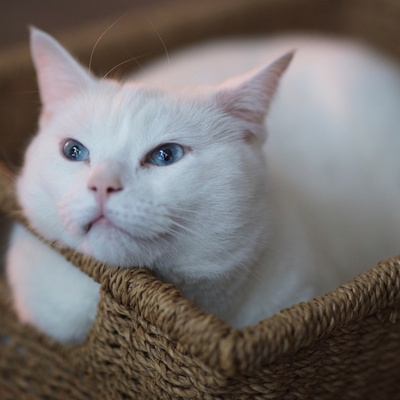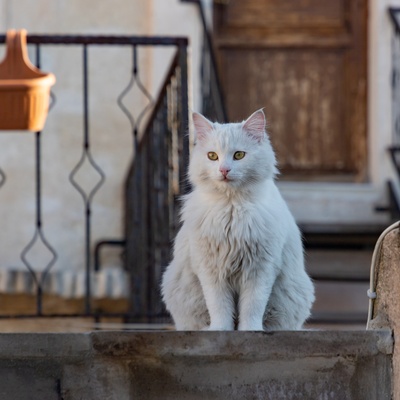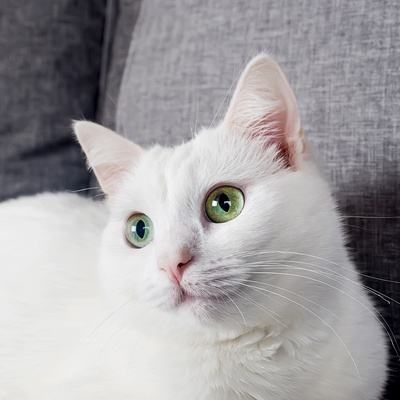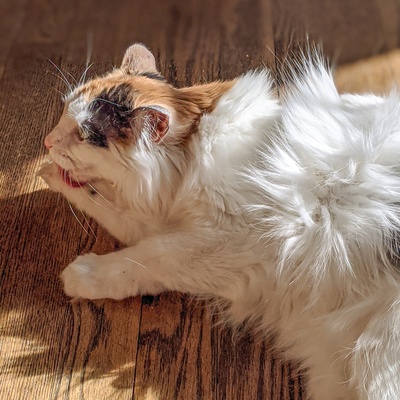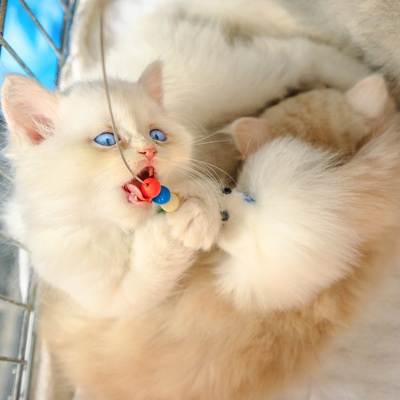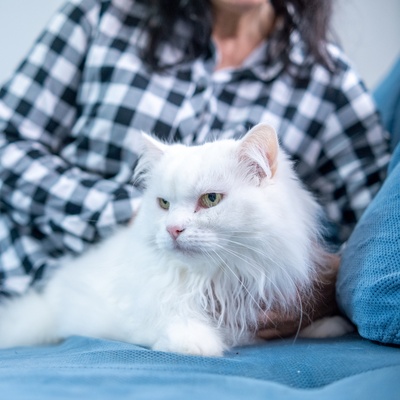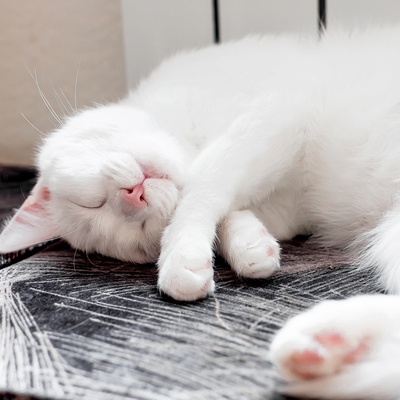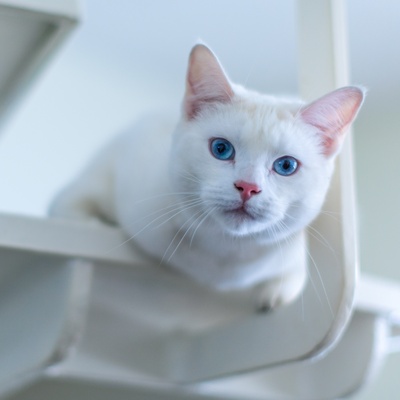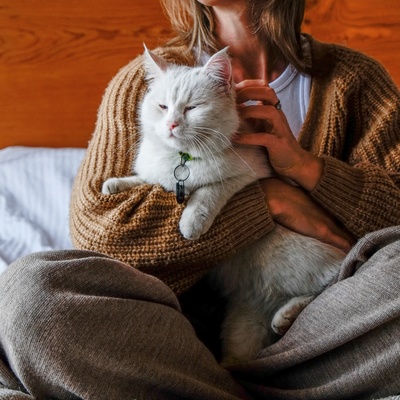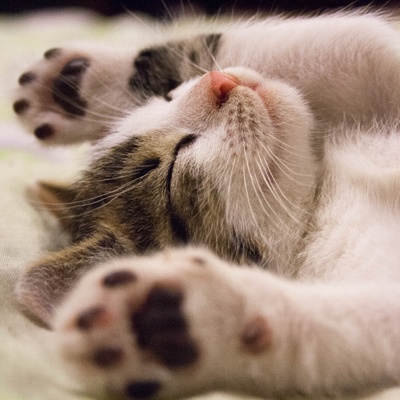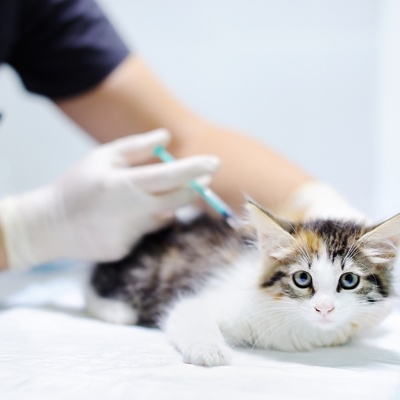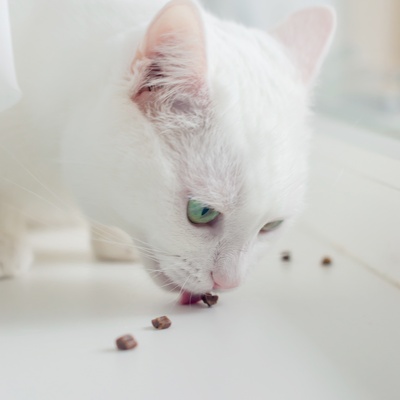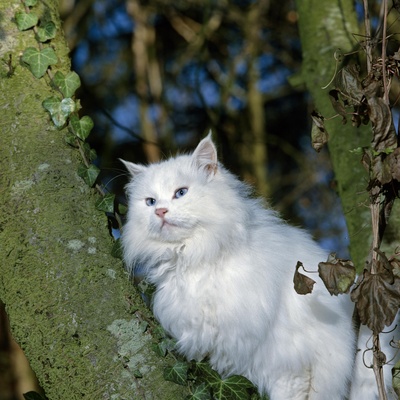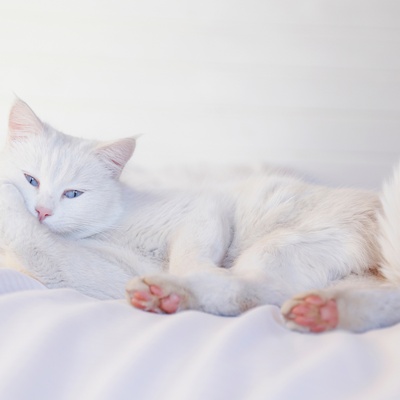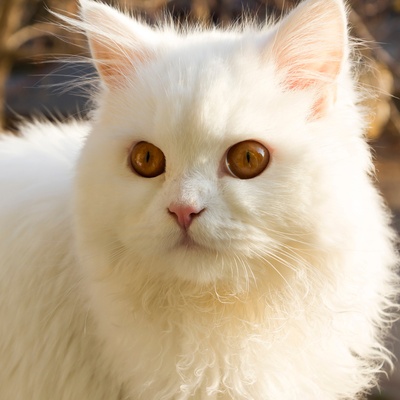Introducing the Turkish Angora
Find out everything you need to know about the Turkish Angora, its characteristics, its behavior, its education, its price.
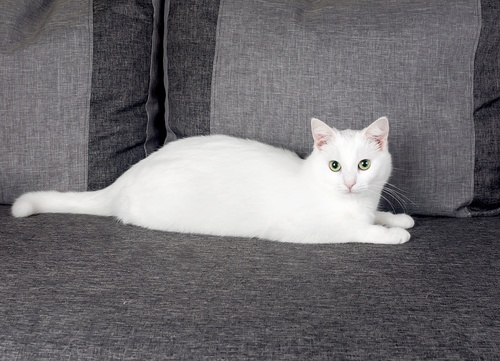
Find out everything you need to know about the Turkish Angora, its characteristics, its behavior, its education, its price.
The Turkish Angora is a unique breed. Originating from Turkey, this elegant cat is known for its silky fur, especially in pure white.
Turkish Angoras are lively and playful, enjoying games and exploration. They are also gentle and affectionate, making them excellent companions. Intelligent and curious, they respond well to positive reinforcement training.
This breed strikes a perfect balance between activity and calmness, bringing joy to their owners with their grace and playful antics.
This selection outlines the unique features of the Turkish Angora breed of cat.
The Turkish Angora is a medium-sized cat, typically standing about 9 to 14 inches tall and weighing between 5 to 10 pounds.
The Turkish Angora has a medium-length, silky coat that is soft and luxurious, shedding minimally compared to other long-haired breeds.
Turkish Angoras are not hypoallergenic, making them less suitable for people with cat allergies.
Turkish Angoras can have a variety of coat colors, with white being the most common, but they can also be seen in black, blue, red, and cream.
The Turkish Angora adapts well to both indoor and outdoor environments but thrives best with space to explore and play.
Turkish Angoras are friendly and sociable, getting along well with children and other pets, and they enjoy human interaction.
Turkish Angoras are generally healthy cats, though they can be prone to certain genetic conditions such as hypertrophic cardiomyopathy (HCM).
The Turkish Angora is an intelligent and playful cat, making it relatively easy to train with patience and positive reinforcement.
We can help you!
Every cat has its own character and specific needs. Making the right choice will ensure their well-being and yours.
Take our quiz to find out which breed is right for you, based on your personality, lifestyle, location and many other criteria.
Don't wait any longer and take the quiz to find out the answer!
The Turkish Angora is known for its elegant, silky coat, making it look like a delicate ballerina with fur.
The Turkish Angora is a medium-sized cat. On average, it stands about 9 to 14 inches tall. Females generally weigh between 5 and 8 pounds, while males can weigh up to 10 pounds. Turkish Angoras are slow growers, reaching their full size and weight around 3 to 4 years of age. This breed features a slender frame, muscular build, and a long, graceful tail.
The Turkish Angora boasts a silky, medium-length coat that feels incredibly soft to the touch. This coat is fine and smooth, with no undercoat, giving it a light and airy appearance. The fur around the neck forms a lovely ruff, and the tail is plumed like a feather, adding to the breed’s elegance.
The Turkish Angora comes in a wide range of colors. While the pure white coat is the most well-known, they can also be found in black, blue, red, cream, and even patterns like tabby or tortoiseshell. This diverse color palette adds to the breed’s charm and visual appeal.
The Turkish Angora is slender and agile with a graceful gait. Its large, pointed ears, often tufted, sit high on the head. The breed has a refined, muscular body, a slightly pointed muzzle, and large, almond-shaped eyes in blue, green, amber, or odd-eyed. These features define its elegant appearance.
Brush the Turkish Angora twice a week, increasing to daily during shedding seasons. Bathe occasionally with a cat-specific shampoo. While they groom themselves well, an occasional bath helps maintain their coat's cleanliness and health. It is worth mentioning that the Turkish Angora isn't hypoallergenic.
The Turkish Angora is affectionate and playful. This breed is known for its intelligence and curiosity, making it a delightful companion.
Turkish Angoras are sociable, easy-going cats that quickly bond with their owners. They crave attention and often follow their owners around the house, engaging in play and seeking cuddles. These cats are known for their vocalizations, including purrs, meows, and throaty cries, to communicate their needs. They thrive in environments where they receive ample attention and interaction.
Turkish Angoras have a gentle temperament, characterized by tranquility and patience. They are compatible with families, children, dogs, and other cats, enjoying a sociable nature. When their tolerance threshold is reached, they prefer to isolate themselves to relax rather than exhibit aggressive behavior.
The Turkish Angora is highly adaptable and can thrive in various living environments, from city apartments to spacious rural homes. The presence of their owner is important, as they seek attention and companionship. They do well in environments where they have space to explore and play.
The Turkish Angora is an active and playful breed, requiring activities that stimulate their intelligence and energy. Playing with the owner is crucial for their well-being, preventing boredom and potential destructive behaviors. They also need calm spaces to rest and recharge. If you're worried about losing track of him, you can fit them with a GPS collar so you can track their movements and locate them if they escape.
Training a Turkish Angora should start from an early age to establish good behavior. Education should be based on kindness, consistency, and rewards. Using play as a training method helps with mental stimulation and prevents bad behavior.
Choosing a cat that matches your personality and lifestyle will ensure your well-being and his!
The Turkish Angora is a resilient and robust breed, known for its overall good health. These cats do not present specific health problems, making them relatively low-maintenance in terms of medical care.
The Turkish Angora is generally a very healthy breed, rarely getting sick. However, like many cats, they can be prone to specific hereditary diseases such as feline hypertrophic cardiomyopathy and polycystic kidney disease. Conducting a DNA test can help detect these diseases and prevent their transmission. Regular visits to the veterinarian are crucial to keep vaccinations up to date and to protect against common diseases like typhus and rabies.
To ensure your Turkish Angora stays healthy, regular vet check-ups are important for vaccinations, worming, and flea prevention. Additionally, maintaining their dental health, trimming their claws, and cleaning their ears will help reduce the risk of infections. Regular care and attention will ensure your Turkish Angora leads a healthy and happy life.
The Turkish Angora is a slender and muscular cat. To maintain their elegant figure and overall health, it is essential to provide them with high-quality kibble as their primary diet. Adding green vegetables rich in water can enhance the kibble and support their renal system.
Turkish Angoras grow slowly, reaching their full size around 3-4 years of age. Their diet must be carefully controlled during this period to support their specific growth needs. It's best to stick to the same brand of kibble and feed them at set times to avoid digestive issues.
While the Turkish Angora is an active breed, they can gain weight if their diet is not controlled and if they do not get enough exercise. Encouraging your cat to play, run, and jump is crucial to prevent weight problems and promote overall health. Regular interactive play sessions with their owners will provide both fun and stimulation.
The Turkish Angora is a highly appreciated breed, and there are several breeders available. It is important to consider a few factors before adoption.
Purebred cats like Turkish Angoras are often bred by professional breeders or in catteries. Visiting breeding sites before adopting a purebred cat is crucial to observe living conditions and ensure their quality. From June 10, 2024, owners must have their cat microchipped by the age of 20 weeks and register its details in a relevant database such as Petlog or Animal Tracker, which is a legal requirement in Britain, with non-compliance resulting in a
fine. Health examinations and DNA tests performed on the cat and its parents are also important to detect possible hereditary health problems.
The cost of acquiring a Turkish Angora can vary depending on several factors, such as lineage, pedigree, reputation of the breeder, and age of the cat. Typically, the price range for a Turkish Angora kitten is between
and
. In addition to the initial purchase price, maintaining this breed involves costs such as healthcare, grooming, and a healthy diet, estimated to be around
to
per year.
Choosing a cat that matches your personality and lifestyle will ensure your well-being and his!
To access the most relevant information, suitable payment methods, and delivery in your region, please select the website corresponding to your country.
